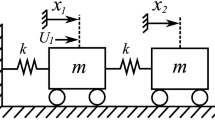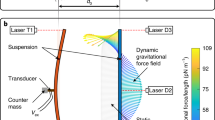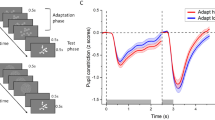Abstract
The following observations may be of interest in connexion with the demonstration of a short-period galvanometer by Attree, Downing and myself at the recent Physical Society Exhibition. The extent of useful amplification of this instrument has since been tested at University College on an ordinary afternoon : the limit is set by the disturbances, external and intrinsic, to which it is liable. To measure these disturbances the galvanometer was set up for photoelectric amplification and cathode-ray display, and its sensitivity increased to 2·4 x 10-10 amp./mm., which is equivalent to a scale distance of 370 m. for direct reading. The period on open circuit was 0·0125 sec., the internal resistance 13 Ω, the resistance (total) for critical damping 230 Ω. With an external resistance of 90 Ω, single sweeps were recorded, each consisting of 50–60 'instantaneous' spots at 0·02 sec. intervals. Eight such sweeps are shown in Fig. 1; they illustrate the basic unsteadiness at extreme sensitivity.
This is a preview of subscription content, access via your institution
Access options
Subscribe to this journal
Receive 51 print issues and online access
$199.00 per year
only $3.90 per issue
Buy this article
- Purchase on Springer Link
- Instant access to full article PDF
Prices may be subject to local taxes which are calculated during checkout
Similar content being viewed by others
Author information
Authors and Affiliations
Rights and permissions
About this article
Cite this article
HILL, A. Limit of Useful Amplification of a Galvanometer Deflexion. Nature 163, 994–995 (1949). https://doi.org/10.1038/163994a0
Issue Date:
DOI: https://doi.org/10.1038/163994a0
Comments
By submitting a comment you agree to abide by our Terms and Community Guidelines. If you find something abusive or that does not comply with our terms or guidelines please flag it as inappropriate.



